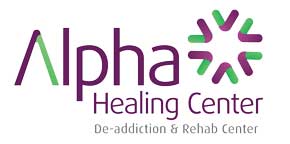The recovery process has endless phases of ups and downs before it takes you to sobriety. However, the road to recovery is a long one. Even strong-headed individuals cave in and venture back to the path of old habits. That doesn’t mean you cannot get over addiction. Addiction is treatable, and you can successfully de-addict yourself.
Multiple researches conducted over decades indicate the positive influence of exercise and self-care practices in the journey of de-addiction. Introducing these elements into your recovery plan can help prevent relapse and make de-addiction possible. Don’t let addiction define your life. Let’s work on being better selves and make addiction a story of the past in your life book.
Fitness: The dopamine hack for your brain
The use of addictive drugs and substances has trained your mind for easy dopamine. It has led to physiological and psychological side effects and a mess of chemical imbalances in your body. Fitness is a holistic approach that results in the well-being of physical, emotional, and mental health.
What is Fitness?
Fitness is being physically fit and healthy to do what one’s heart desires. However, it is a much wider concept and encapsulates mental as well as emotional well-being. Our physical and mental health are co-related on a much deeper level than we assume. On a journey of de-addiction, driving our focus towards fitness helps achieve complete recovery.
A journey to recovery is a thousand miles. Walking it through fitness will ensure zero chances for relapse.
Benefits of Fitness in Your de-addiction Journey
Fitness enhances the mind balance
Fitness starts with movement. Any form of movement, be it high intensity or low intensity results in an adrenaline rush in your body. When you expose your body to physical workouts, it releases the same set of happy hormones that drugs release. It stimulates the stress receptors and regulates your mood.
Addicts of drug abuse crave dopamine highs. Exercise offers an energy high with a gush of endorphins that makes you feel good. Exercise again could be anything, a walk, a run, a strength training session, or a good swim.
Fitness helps relieve the stress
Stress can have different faces. It can be physical or physiological, creating uncomforting tension in your body and mind. Regular exercise secretes serotonin- an anti-stress hormone that promotes a sense of well-being. It’s a positivity hormone that helps you stay away from substance abuse.
Anxiety, depression, and stress are commonly observed in people recovering from addiction. To prevent relapse, focus on getting your stress levels under control.
Fitness helps get a clear perspective
Drug abuse affects your ability to think clearly and rationally. It often leaves you with an overwhelming feeling of being lost.
Working on your fitness positively influences your brain. It helps you focus on important aspects by bringing energy, enthusiasm, and positivity to your life. The effects of exercising stay much longer than the activity itself. In a phase of recovery when things seem gloomy, fitness brings the optimism you need to regain confidence.
Fitness helps you sleep better
8 hours of quality sleep is important for your brain and mind to function optimally. However, people recovering from addiction often face the problem of disturbed sleep. Focusing on a fitness regime helps restore the natural functioning of your body. It helps you sleep peacefully at night by reducing the sudden panic attacks. When you sleep better, your stress and overthinking remain under control.
Fitness enhances your self-worth
One loses respect for themselves on the path of addiction. But when you stick to a fitness regime, you start seeing results in your mental and physical health. You regain the confidence in self and attain a positive outlook towards life.
Ultimately, the goal of recovery seems attainable when you see a promise in yourself.
Self Care: What is it and Why do you need it in your recovery journey?
Self-care is an amalgamation of a hundred beautiful things you do for yourself. It is much more than a luxury vacation or a dip in a jacuzzi. It includes all those little aspects that calm your nerves and bring you joy. It can be cooking, planting, self date or traveling to your bucket list place. The spectrum of self-care is as large as one can envision.
Self-care practices take you a long way in the journey of de-addiction. It is a holistic approach that helps you enhance your overall well-being. Your body undergoes severe negative changes during the active addiction phase. It affects your stress receptors and coping mechanisms. Self-care helps rewire that coping mechanism and instill a sense of self-worth and mental wellness.
3 Ways to Practice Self Care
Practice Mindfulness
Addiction is an escape from reality. It is easy to avoid the stress and anxiety of daily life when you are in a buzz of drugs. When was the last time you were fully aware in a moment? Owe it to the Internet world, we are overwhelmed with information. There is always a thought brushing our minds.
Mindfulness is the best way to bring acceptance in life and cope with reality. With mindfulness, you consciously nudge your mind and bring it to the present.
So how do you practice mindfulness?
Start with baby steps. Keep aside the phone when you perform routine tasks like brushing, eating, bathing, and cooking. Gently pull back your thoughts whenever it starts wandering in the future. Instead of running away from negative emotions, face them. Let every thought pass by. And get yourself comfortable with the absurdity of your thoughts.
Be out in nature
Nature is the best doctor. Don’t trust studies and scientific research? Spend a few minutes in nature and witness positive energy flow within you.
Spending time outdoors is proven to relieve stress and boost mood. Multiple times in your recovery journey, you might feel like giving up. Instead of locking yourself up in a room, go outdoors. Go for a hike on trails or a quick run to get instant mood upliftment.
Set the boundaries
Drawing a boundary is not rude. It’s protecting yourself against the instances and people that trigger you. In your journey of de-addiction, you will have to say no to people and plans that make you lose control. Learn to say no for the betterment of yourself.
The form of self-care varies for different people. It is choosing a pace that’s comfortable for you. For the longest time, you kept addiction above everything else. Now, it’s time to make yourself a priority. And, while you continue to fight addiction, know that it is the battle against addiction, not yourself. Be gentle and shower all the love you have upon yourself.







